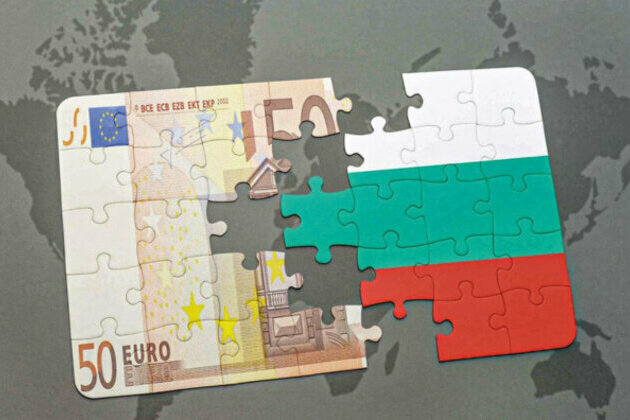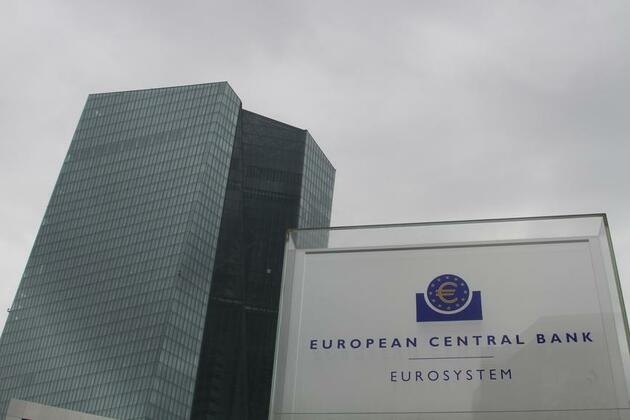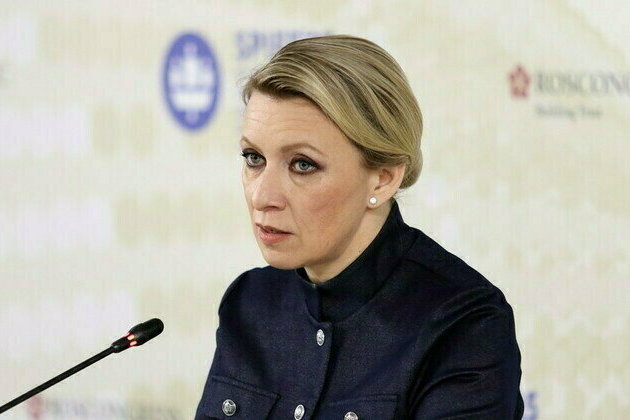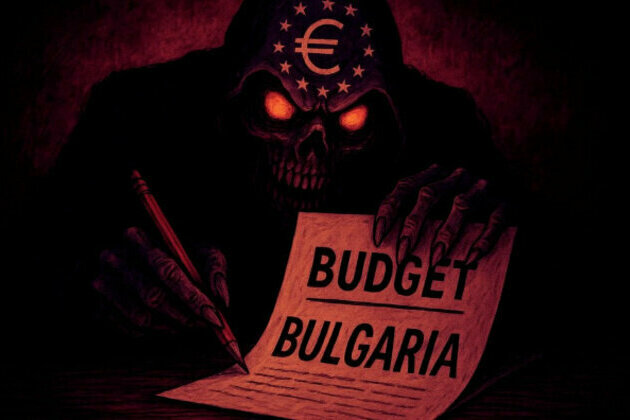Bulgaria's Eurozone Entry: Facts That Bust the Biggest Myths
Novinite.com
29 Jun 2025, 15:39 GMT+10

With Bulgaria's accession to the eurozone now officially scheduled for January 1, 2026, following unanimous approvals by both the Eurogroup on June 19 and ECOFIN on June 20, disinformation and conspiracy theories about the euro are once again spreading. From price spikes and foreign debt to sovereignty loss and surveillance through the digital euro, here is what's being claimed - and what the facts really are.
Will prices skyrocket after the euro is introduced?
The most widespread fear concerns inflation. According to economist Prof. Viktor Yotsov, people often conflate inflation with high prices. Inflation refers to a general and ongoing rise in prices. But prices may already be high for other reasons, and that alone doesn't equal inflation. The adoption of the euro is not inherently inflationary. If someone has the market power and intent to raise prices, they are likely doing so already - regardless of the currency in use.
Prime Minister Rosen Zhelyazkov and the head of the National Revenue Agency, Rumen Spetsov, both underlined in May and June that current price increases are not driven by eurozone accession. Traders may try to exploit the transition period, but the government is actively working to prevent speculative price hikes.
Prof. Yotsov also noted that Bulgaria, like other former socialist countries, still has significantly lower average prices than the rest of the EU - around 60?70% of the EU average. As price levels gradually converge, Bulgaria is likely to experience higher inflation than wealthier member states, but this trend is independent of whether the country adopts the euro or not.
Will exchanging leva for euros be complicated?
Authorities have prepared extensively for the transition. Bulgarian National Bank (BNB) Governor Dimitar Radev stated in May that the country is fully ready. Once the euro is adopted, there will be a one-month window during which both leva and euros can be used for cash payments. During this period, receipts will show totals in both currencies, and retailers will be obligated to return change in euros where possible.
For six months, banks will offer free and unlimited conversion of leva to euros at the fixed rate. For sums over BGN 30,000, a three-day advance notice will be required. Large retailers will have euro cash on hand, and post offices across the country - more than 2,000 locations - will offer currency exchange services, particularly in smaller towns.
Professor Yotsov emphasized that there will be multiple ways for citizens to exchange their money and assured that the entire process will be smooth and without fees. He expects no confusion or financial disruption.
Will salaries, pensions, and deposits be affected?
All existing financial instruments - wages, pensions, loans, deposits - will be automatically recalculated into euros using the official fixed exchange rate. This process requires no action from citizens and comes with safeguards against abuse. Interior Minister Daniel Mitov confirmed that law enforcement is monitoring online forums and social media to identify potential fraud, counterfeiting, and fake news related to the transition.
Is Bulgaria giving up its sovereignty by joining the eurozone?
While concerns about the loss of monetary independence are common, Prof. Yotsov explained that Bulgaria has not had an autonomous monetary policy since 1997. That year, the Currency Board was introduced, effectively outsourcing monetary control by fixing the lev to the German mark, and later to the euro.
Under the Currency Board, the central bank cannot issue new money, conduct open-market operations, or refinance commercial banks. These are the traditional tools of monetary policy, and Bulgaria has not had access to them for nearly three decades. Joining the eurozone does not represent a further surrender of sovereignty - it is the formalization of a situation that already exists.
Will the European Central Bank control Bulgaria's foreign reserves?
This claim is false. Even within the Eurosystem, each central bank - including the BNB - manages its own reserves. Only a small portion of the reserves will become part of the joint pool managed by the European Central Bank. The BNB will retain control over its assets.
Yotsov clarified that a large share of the BNB's current reserves consists of mandatory deposits from commercial banks. Under current Bulgarian regulations, banks must keep 12% of deposits at the central bank - far higher than the 1% required by the ECB. When Bulgaria joins the eurozone, this requirement will fall, releasing significant liquidity. However, this money belongs to the commercial banks, not the BNB. Some of it may remain in the system as excess reserves; some may be repatriated by the parent companies of foreign-owned banks. Either way, it will not automatically lead to inflation.
Will Bulgaria be responsible for the debts of other eurozone countries?
No. This myth has been circulating since Bulgaria joined the ERM II mechanism in 2020. The truth is that no eurozone or EU member state is liable for another country's national debt. The relevant EU treaties explicitly rule out such arrangements.
According to Prof. Yotsov and other experts, such financial commitments can only arise from bilateral agreements between countries - never through automatic mechanisms of the eurozone. Associate Professor Grigoriy Vazov also described the idea that Bulgaria would take on the debt of others as "absurd."
Will the digital euro be used to control people?
This narrative has become increasingly common but remains entirely unfounded. The digital euro, currently in a preparatory phase until at least October 2025, is designed with privacy as a core feature. According to both the European Central Bank and fact-checking reports from Euronet Plus, the digital euro will allow for secure payments without revealing user data to third parties - aside from minimal data needed to prevent illegal activities.
The ECB has no interest in commercializing personal payment data and will not share it with institutions like national finance ministries. The aim is to provide a digital payment tool that guarantees privacy and complements existing options - not to create a system of control.
Takeaway
The myths surrounding Bulgaria's adoption of the euro - from fears of mass inflation to fantasies of lost sovereignty or surveillance - lack any factual basis. As the country moves toward its January 2026 entry into the eurozone, the focus remains on transparency, institutional preparedness, and protecting consumers from speculative behavior.
Sources:
Bulgarian National Radio (BNR)
- Club Z media
National Revenue Agency (NRA)
- Bulgarian News Agency (BTA)
Ministry of Interior
European Central Bank (ECB)
European Union news network Euronet Plus
Eurostat
Expert opinion ? Associate Professor Dr. Grigoriy Vazov on eurozone debt responsibilities
 Share
Share
 Tweet
Tweet
 Share
Share
 Flip
Flip
 Email
Email
Watch latest videos
Subscribe and Follow
Get a daily dose of Switzerland Times news through our daily email, its complimentary and keeps you fully up to date with world and business news as well.
News RELEASES
Publish news of your business, community or sports group, personnel appointments, major event and more by submitting a news release to Switzerland Times.
More InformationEurope Business
SectionApple allows outside payment links under EU pressure
SAN FRANCISCO, California: Under pressure from European regulators, Apple has revamped its App Store policies in the EU, introducing...
NATO state to conscript women
A new law in Denmark subjects 18-year-old females to the draft starting July 1 Women in Denmark are now subject to conscription,...
Eurozone inflation rate reaches 2 pct in June
The inflation is driven by the price of services, which recorded a yearly inflation rate of 3.3 percent in June, up from 3.2 percent...
EU creating liberal dictatorship in ex-Soviet country Moscow
The Russian Foreign Ministry has condemned the prosecution in Moldova of regional head Yevgenia Gutsul as politically motivated repression...
Ukraine isnt Israel. And thats exactly the problem
Why Trump managed to settle the conflict in the Middle East but not in Eastern Europe US President Donald Trump secured his image...
Will the ECB Control Bulgarias Budget After Euro Adoption
A video posted on Facebook by Kostadin Kostadinov, leader of the Revival party, claims that once Bulgaria joins the eurozone on January...
International
SectionTrump hints at DOGE investigation of Musk subsidies
WASHINGTON, DC - U.S. President Donald Trump on Tuesday claimed Elon Musk's success has been built on government subsidies. Without...
Native leaders, activists oppose detention site on Florida wetlands
EVERGLADES, Florida: Over the weekend, a diverse coalition of environmental activists, Native American leaders, and residents gathered...
Beijing crowds cheer AI-powered robots over real soccer players
BEIJING, China: China's national soccer team may struggle to stir excitement, but its humanoid robots are drawing cheers — and not...
COVID-19 source still unknown, says WHO panel
]LONDON, U.K.: A World Health Organization (WHO) expert group investigating the origins of the COVID-19 pandemic released its final...
Fox faces $787 million lawsuit from Newsom over Trump phone call
DOVER, Delaware: California Governor Gavin Newsom has taken legal aim at Fox News, accusing the network of deliberately distorting...
DeepSeek faces app store ban in Germany over data transfer fears
FRANKFURT, Germany: Germany has become the latest country to challenge Chinese AI firm DeepSeek over its data practices, as pressure...













